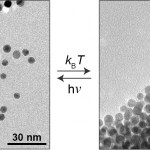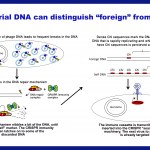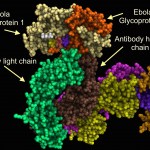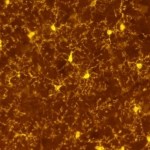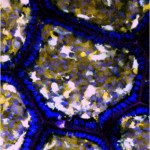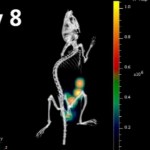immunology
One of the great things about having achieved some notoriety as a blogger is that readers send me links to articles that the believe will be interesting to me. They usually come in waves. For instance, after anything having to do with Stanislaw Burzynski, “right to try,” particularly egregious antivaccine idiocy, and the like hits the news, I can be sure that well-meaning readers will send me or Tweet at me about the same article several times. (So don’t take it personally if I don’t respond; I get hundreds of e-mails a day.) Sometimes they’re wrong and its something that I have no interest…
Why does infection with bacteria or viruses make you feel sick? Prof. Guy Shakhar and Dr. Keren Shakhar have proposed that your symptoms are not just a byproduct of your body’s attempt to get rid of the infection. It is your genes’ way of ensuring they are passed down. The long and short of their argument is that the malaise, loss of appetite and lethargy are all ways of isolating you from your social group – so that your kin, who carry many of your genes, are not infected as well.
That means we share an evolutionary adaptation with such organisms as bees that go off to die far from the hive…
Our researchers often appear in the pages of Nature, Science, etc, but here is one we think is worth mentioning: Christoph A. Thaiss, a PhD student in the immunology group of Dr. Eran Elinav, recently appeared in Nature – as an interviewer of Bruce Beutler, who shared one half of the 2011 Nobel Prize in Physiology or Medicine with Jules Hoffmann for their work on the activation of innate immunity. Thaiss and Beutler were at the Lindau meetings, where young researchers get to rub shoulders with Nobel laureates. Beutler, whose work has been called the second revolution in immunology says…
AHHH!!!
2011-- FreeOK, I give a talk vaccines, including a bit on herd immunity, and why it is important for everyone, including those of us who are not immunocompromised.
2013-- Started a new job! Had a ton of bloodwork done to get baseline readings, just in case I get exposed to another pathogen.
2014-- Go to Africa, need to make sure my vaccines are all up to date. I have two vaccine cards (a lovely 1970s avocado/lemon/lime green, they should probably be in a museum)--
Physician: "*twists face* This one card says you got one MMR, and this card says you got one too, and I think the dates…
One day in the future, we may be treating our ailments with microbiotic combinations designed specifically to correct imbalances in our personal microbiomes. We’ll bring our prescriptions on rewritable paper and pay using shimmery optical chips embedded in our cell phone cases or maybe our jewelry. Or we’ll be waiting in our doctor’s office for a simple test of our microbiogenome to see if a light-based nanoparticle delivery treatment is working, while watching iridescent optical displays that change as we move...
These future scenarios (and many more) are all imaginary, but…
I love this. I love this so much.
Jim Carrey and his anti-vax comrades know literally nothing about vaccines, how they are developed, and how they work. Vaccines do not cause autism.
... But... what if a vaccine *did* end up having a pretty 'bad' side-effect (outside of something expected, high fever, allergic reaction, etc)?
How would scientists know?
Would it be covered up by Big Pharma and the League of Evil Immunologists?
Would The Truth come out when some post-doc henchman has a change of heart and runs to the internet to write a blog post Expose?
!!!!!!
This is what happens when…
When Dr. Jakub Abramson was a 14-year-old boy in the former Czechoslovakia, he asked his father what was the best place to do science. His father took the question seriously and, after some consideration, answered “the Weizmann Institute of
Dr. Jakub Abramson
Science.” Since that day, says Abramson, he knew he was bound for the Institute. “It’s just that the science I was interested in back then involved blowing things up,” he says.
Today, Abramson is more interested in exploding the common wisdom about autoimmune diseases. His lab at the Weizmann Institute has produced two new papers –…
Foreigner or native-born? Your immune system discriminates between them, as do those of bacteria. Yes indeed, bacteria do have immune systems – pretty complex ones at that. And like any useful immune system, the bacterial ones must have a good technique for distinguishing “foreign” from “self.”
You may even have heard of the bacterial immune system: It’s called CRISPR, and it’s used in biology research around the world for DNA engineering and genome editing. CRISPR normally inserts short DNA sequences taken from phages – viruses that invade bacteria – into special slots called spacers within…
LOL!
Former blag-brother Kevin, along some friends from Harvard, have an independent website set up for educating the public about immunology:
Emmunity.org
They have a page I will link to many times in the future, describing the basic cellular components of the immune system, as well as another page filled with animations explaining some tricks those cells like to perform.
They also have a fantastic podcast: Audiommunity
I was super excited when they invited me on to talk about the Immunity Project, specifically, the paper that group just published.
*SPOILER* As four scientists…
One wonderful thing that has come two US citizens being infected Ebola (and successfully treated for the disease) is *education* the general public is getting about this, frankly, 'scary' virus.
Im not talking about the bizarre nonsense/missed opportunity posted by Sanjay Gupta and his 'producer' Danielle Dellorto. Of course science bloggers have capitalized on this opportunity to educate people (its kinda what we *do*). But some journalists in main-stream-media, unlike Gupta and Dellorto, have taken a moment to speak to actual scientists working on Ebola/the…
Oh, Sanjay Gupta.
Secret serum likely saved Ebola patients (warning: link has auto-play video, ugh)
Three top secret, experimental vials stored at subzero temperatures were flown into Liberia last week in a last-ditch effort to save two American missionary workers who had contracted Ebola, according to a source familiar with details of the treatment.
There was nothing top-secret about the experimental treatment given to the US Ebola patients.
The 'secret serum' is just a monoclonal antibody therapy for Ebola. Administering exogenous antibodies as a therapy for viral infections is an old-…
In 1925, dogsledders raced through the frozen Alaskan bush to bring antiserum to the isolated village of Nome. The antiserum arrived in time, saved the lives of many villagers from the horrors of diphtheria, and inspired the Iditarod, a famous race in celebration of the dog sledders' heroic feat.
West Africa could use a similar effort today. Richard Harris's blog at NPR has a good story about doctors' efforts to develop and use antiserum to treat Ebola. According to ABC news, Dr. Kent Brantly, who is being seen at Emory University Hospital was treated…
Science on Tap, which happened in Tel Aviv last Weds. eve, was as great a success as ever. Ariela Saba, one of our Weizmann writers, attended one of the talks. Here is her report:
Right around now – in some 55 bars all around Tel Aviv and Jaffa – Weizmann Institute scientists are starting their talks. Some of the patrons are in the middle of dinner; others are already sipping after-dinner drinks. Here in The Container at the Jaffa port, Dr. Eran Elinav is just warming up. From where I am sitting, I can see into the kitchen: Plates are making their way out laden with fluffy white bread, butter…
More science-themed haikus. I seem to keep writing them because we tend to put out three “mini press releases” at a time (a relic of the days when they were printed on two sides of a fold-up page and mailed). So I could pick just one to blog about, or I could try to fit all three into one post (which tends to get muddled when it is on subjects as varied as physics, neurobiology and genetics). Or else I can leave these little breadcrumbs inviting you to follow them back to our website, where the fuller explanation awaits (or, from there, you can follow the links in the releases to get to the…
Poetry is finding its way into our consciousness at the Weizmann Institute: At the recent, fourth annual Science on Tap evening, which the Institute hosts in Tel Aviv, several poets joined in the fun, reading from their work before and after the talks given by scientists in over 60 filled-to-capacity pubs and cafes around the city. And calls have gone out for entries to the Ofer Lider creative writing contest – open to scientists (writing in Hebrew). The contest is named for Prof. Ofer Lider, an Institute scientist who, sadly, died young and who wrote poetry because he believed that…
NOH MAH GAWD!!!
Mysterious Disease Leaves Patients With AIDS-like Symptons, But Not HIV
Researchers have identified a mysterious new disease that has left scores of people in Asia and some in the United States with AIDS-like symptoms even though they are not infected with HIV. [bolding original]
Researchers identify rare adult immune disease in Asia
Researchers at the National Institutes of Health (NIH) have identified a new disease among people in Asia that causes AIDS-like symptoms but is not associated with HIV.
HIV-like immunodeficiency observed in Asia
Researchers have discovered…
The BBC reports that for the first time, scientists have been able to watch the an infection develop in real time, inside an animal. The best part? They used a special glowing bacteria and measured the rays of light escaping from the animal's body:
The researchers used a genetically modified version of a mouse bug, Citrobacter rodentium, which produces light.
Dr James Collins, who works in Prof Frankel's lab, then puts the infected mice inside the scanner.
"It is a dark box which keeps the animals warm and blocks any other light from coming in. It has a camera at the top so we can very…
HAAAAAAHAHAHAHAHAHA! I feel like Stewie Griffin. I DONT LIKE CHANGE!!!
Give us a minute, we will figure it out (hey, I figured how to get pages of comments so Our Epic Threads dont take over 9000 years to load! dont have to top it off at 5K!!!)
In the mean time, Skeptics of Oz have my talk uploaded! Its broken up into the first half (my talk), the second half (the Q&A), and then a little third part to finish off the Q&A!
This is just another excuse to poke fun at the stupidity of Creationists--
Creationists try to lecture us all the time about how 'perfect' our immune system is. How wonderful and precise and intelligently designed it is obviously points towards the existence of a creator god (aka the Christian god).
Well, if our immune system is the best their god can do, then we should all be worshiping HIV-1, because its 'smarter'. Its been outwitting our immune systems for well over a century, and outwitting some of the best thinkers of our time and the best technology we have to offer for three decades…
The technology we have available to us today in the lab is both a boon and a bafflement. Example: The screens we have for RNA expression in cells is so sensitive we can see tiny changes in RNA expression levels in healthy/diseased/drug treated/etc cells. YAY! More information! More observations! More new ideas for research!... Except, the screens we have for RNA expression in cells is so sensitive, we can see tiny changes in RNA expression levels that dont really mean anything.
Example: The techniques we have for identifying viral RNA/DNA in cells is so sensitive... that we can pick up…


